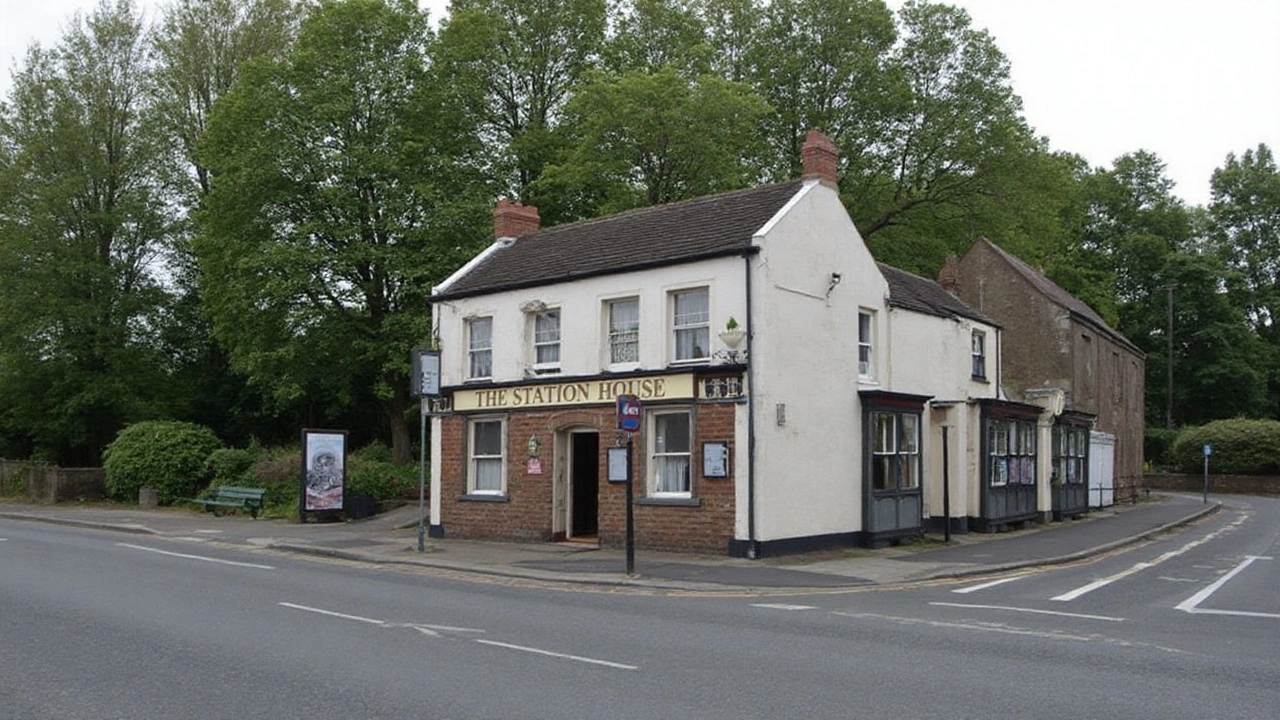£27,000 vanished from the bank accounts of a rural pub in the Cotswolds. Not a multinational, not a tech start‑up—just a small hospitality business trying to make its numbers work. The target was The Farmer’s Dog, run by television presenter Jeremy Clarkson, who says hackers broke into the pub’s accounting system and siphoned off the cash.
£27,000 drained from pub accounts
Clarkson disclosed the breach in his newspaper column, saying unidentified attackers accessed the books and “helped themselves.” He tied the incident to a wave of cyber problems hitting well‑known brands, name‑checking Jaguar Land Rover, M&S and Co‑op as recent victims that made headlines when operations were disrupted. His gripe: when large companies get hit, it’s news everywhere; when a village pub loses tens of thousands, it barely registers.
The mechanics of the theft are not yet clear. Was it a compromised login for cloud accounting software? Invoice redirection via a spoofed supplier email? An insider account abused after a phishing lure? Clarkson didn’t spell it out, and there’s no confirmation of a police report or bank recovery attempt. In cases like this, small firms often learn of a drain only when reconciliation throws up a gap, by which time transfers have been laundered through mule accounts and are hard to claw back.
The timing matters. The Farmer’s Dog opened in August 2024, so this hit lands early in the life of a business still bedding in systems, vendors and staff. Early months are when controls are soft, routines aren’t fixed, and multiple third‑party tools are being plugged in. That combination—new processes, multiple logins, hurried approvals—creates a broad attack surface for criminals who live off weak passwords and delayed oversight.
Clarkson framed his experience as part of a bigger pattern: cyber crews are targeting organisations of all sizes because the tools are cheap and the payoffs quick. While ransomware grabs attention, simple credential theft and payment fraud remain the bread‑and‑butter for crooks, especially against hospitality businesses that rely on cloud point‑of‑sale, online booking, and outsourced payroll.

Principles, margins, and a growing risk for small hospitality
The pub itself was set up with a blunt rule: only British produce and British drinks. That stand has marketing punch—local farmers, short supply chains, a menu rooted in the land—but it also forces tough trade‑offs. Clarkson has said the policy means no Heinz ketchup, no Coca‑Cola, and even no black pepper. He’s claimed the pub loses roughly £10 per diner as a result. In a sector where profit per cover is usually counted in small coins, losing a tenner per head is not sustainable without deep pockets or a plan to lift spend and throughput fast.
The location adds charm and cost pressure. The Farmer’s Dog operates out of a renovated barn, The Windmill, on Clarkson’s land near Burford. Rural pubs pay in logistics and labour: deliveries are fewer and pricier, staff pools are limited, and seasonality dictates footfall. When a cyber attack drains £27,000, it doesn’t just sting the balance sheet—it restricts cash for payroll, stock, and marketing in the very weeks a new venue is trying to win regulars.
On top of that, Clarkson says he’s dealing with attempted fraud via food intolerance claims. In one case he described, a diner alleged they fell ill from gluten after being served beer instead of cider, but CCTV, he said, showed otherwise. He has even floated the idea of banning people with food intolerances—admitting it would be commercial suicide but insisting these requests put his kitchen through hoops. The tension is obvious: allergy rules in the UK are strict for good reason, and missteps carry legal risk and moral weight. Since 2021, tougher labelling laws have sharpened the focus on ingredient accuracy, and even pubs that don’t pre‑pack food face intense scrutiny from diners with legitimate dietary needs.
All of this is unfolding in public because Clarkson is, well, Clarkson. Viewers have watched his farming experiments and planning battles on screen. Season four of his series tracked the permit issues and staffing strains tied to the pub launch. Earlier this year he said he was “done” with starting businesses, arguing he doesn’t understand them and isn’t driven by money. And yet there he is, pulling pints and praising the joy of a beer brewed on his land and pizza dough made from his wheat—what he called a pocket of rural perfection.
The cyber attack cuts across those stories. Celebrity aside, this is a textbook small‑business problem: lots of operational plates spinning, tight margins, and a dependency on cloud tools that are only as strong as the weakest login. Most hospitality owners don’t have an IT team; they rely on vendors and basic passwords. That gap is exactly where criminals thrive.
How do these attacks usually work against a pub? A few common paths keep coming up:
- Credential theft: Staff reuse passwords or skip multi‑factor authentication on accounting and booking systems. One phish later, criminals are inside the ledger.
- Invoice fraud: A supplier email is spoofed, bank details change, and legitimate payments get diverted to mule accounts.
- Compromised remote access: POS terminals, Wi‑Fi routers, or shared office laptops run old firmware, giving attackers a foothold.
- Approval gaps: A single person both enters and approves payments, leaving no second pair of eyes to catch anomalies.
UK authorities have been blunt in their guidance to small firms: switch on MFA everywhere, keep software patched, and train staff to pause before clicking. Those aren’t silver bullets, but they shut down the easiest doors. For accounting specifically, dual approval for outbound payments and bank alerts for every transaction can shave hours off detection time. If an attack is spotted quickly, banks sometimes freeze transfers before funds hop through a chain of mules.
There’s also the insurance angle. Cyber cover for micro‑businesses has grown, but policies vary and often require basic controls—MFA, backups, role‑based access—to pay out. For a pub, cover might extend to incident response, legal advice, and some reimbursement of stolen funds, minus an excess. Without it, owners rely on the bank and, if they’re eligible, a claim with Action Fraud to kick off a police case number and potential investigation.
Clarkson’s comparison with big‑name breaches makes a wider point about headlines and harm. When Jaguar Land Rover or a national retailer stumbles after a cyber hit, supply chains stall and tills go quiet in hundreds of sites, so it leads the news. A single pub rarely makes the evening bulletin. But for the people running it, a five‑figure hole is existential. It delays supplier payments, spooks staff, and forces immediate trade‑offs—cut hours, shrink menus, push prices, or find fresh capital.
Then there’s brand risk. The Farmer’s Dog is built on an identity—British‑only sourcing, a farm‑to‑fork promise, a TV personality at the helm. Stories about intolerance disputes or bans can overshadow that, no matter the context. Small hospitality lives and dies on repeat custom and word of mouth. If diners sense friction or confusion, they drift to the next pub down the lane where the ketchup is familiar and the card machine definitely works.
Setbacks were there from the start. Planning rows, staffing gaps, and the learning curve of turning a farm building into a gastropub all made it onto the show and into the press. The cyber theft is the newest headache in a list that would test any owner, never mind one whose every hiccup gets amplified online. Whether Clarkson seeks to claw back the funds, bring in forensic help, or tighten controls behind the scenes, the next few weeks will say a lot about how the venue stabilises.
For other small operators reading this and wincing, the playbook is dull but effective:
- Turn on multi‑factor authentication for banking, accounting, email, and booking tools.
- Split duties: one person enters payments, another approves. Set daily payment limits.
- Use bank alerts on every outgoing transfer and reconcile accounts daily during busy periods.
- Lock down shared devices, update firmware on routers and POS, and remove old user accounts.
- Validate any supplier bank‑detail change with a phone call to a known number.
- Keep offline backups of critical data and a simple incident plan (who to call, what to switch off).
- Ask vendors about their own security: MFA support, audit logs, and incident response.
None of that will sell another pint. But it buys resilience for when a text lands at 6 a.m. saying thousands have just left the account. In a business where cash flow is oxygen, and where a public row over menu choices can be as damaging as a card‑machine outage, the difference between a close call and a crisis is often a second approval click or a code from an authenticator app.
Clarkson’s pub was pitched as an experiment in doing things his way. That gives it an edge—and a target on its back. The hackers who took £27,000 didn’t care about the British‑only policy or the TV show. They saw a new system, a gap, and a chance. The question now is whether The Farmer’s Dog can close those gaps fast enough to keep the beer flowing and the books balanced.
